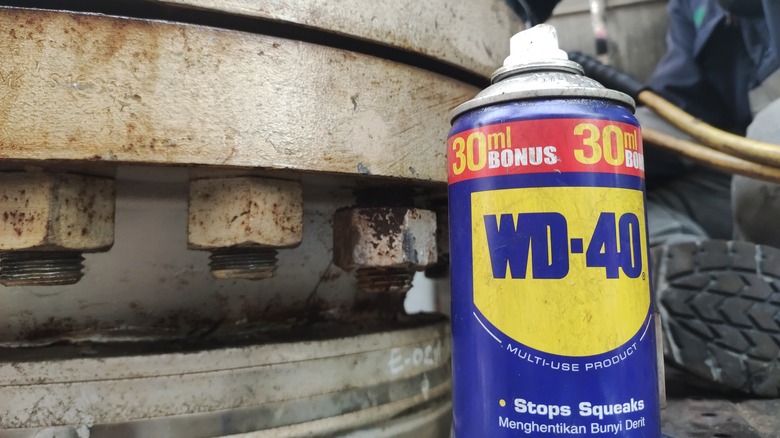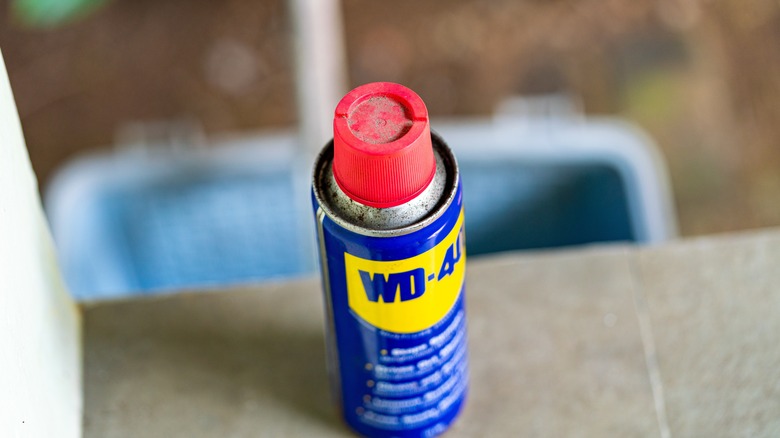Does WD-40 Have Any Serious Side Effects? Here's What The Company Has To Say
It's only natural to assume that most types of aerosol products will have harmful chemicals in them that can put the user or other animals at risk. WD-40, for example, is a product with a plethora of unexpected uses as well as practical uses around the garage. From silencing squeaky hinges to removing large pythons from cars, there's no shortage of tasks WD-40 can't accomplish. Naturally, one would think this product is likely harmful to anyone in the vicinity of it being sprayed.
Surprisingly enough, WD-40 products aren't dangerous to use normally. No, you shouldn't go ingesting it, and you should definitely wash out your mouth in case any somehow gets in there. If a user swallows too much of the multi-use aerosol product, it can cause chemical pneumonitis, severe lung damage, and even death. If a user gets any in their eyes, it's recommended to flush out eyes, but it's going to cause redness and tearing at worst.
Bottom line, there's no risk to being in the same vicinity as WD-40 products as long as they're used properly.
What WD-40 says
WD-40 lists several notices on its website pertaining to its products. It boasts that its products don't "require warnings for cancer, birth defects, or other reproductive harm." All of its products are non-corrosive, it limits the amount of phosphorous, and abides by Volatile Organic Compound (VOC) regulations in all 50 states. Other than some of its toilet bowl cleaners and mold and mildew removers, WD-40 products don't include a number of toxic chemicals such as benzene, chlorine bleach, and ammonia found in competitor products. Those toilet bowl cleaners and mold removers contain some chlorine bleach.
WD-40 is so safe and useful in a variety of scenarios, in fact, that its website has a whole page discrediting myths and the different ways it has been helpful to professionals. Sure, there are several things you should never use WD-40 on, but it reportedly saved the day when a bus driver in Asia had to remove a python from under their bus, according to the manufacturer.
The most important myth debunked there is the one about WD-40's health and safety. There are some unsubstantiated stories and allegations out there. This is typically because there's a slew of scary facts listed on the product's Safety Data Sheet (SDS), which states the toxicological information. But WD-40 says, "SDS information is for the workplace and not primarily intended for the general consumer. For the general consumer, the product label provides the key safety and usage information."

